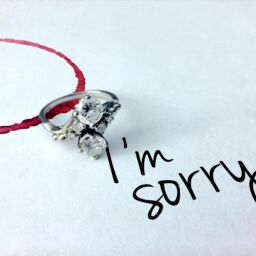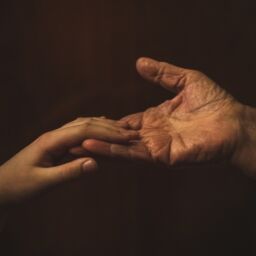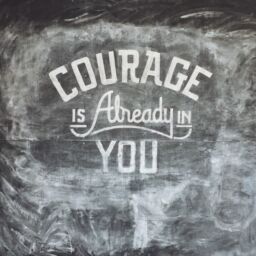
Self-Abuse Through Food
By Roxanne Guiney
One large misconception about eating disorders is that they’re all about weight and the aesthetics of being slender. In reality, they are often a form of Self-Abuse. The person may be using food as a method of punishing themselves, they may abuse themselves because of what they’ve eaten, or have developed an addiction to food. Eating disorders come in many different forms of abuse cycles and can intertwine with various forms of Self-Abuse.
Food and Restriction as Punishment
People who are Self-Abusing may find methods to harm themselves through food. Although the ups and downs in their lives may be unrelated to food, sufferers of Self-Abuse may develop thoughts such as, “I don’t deserve food” or “I should eat all of this junk because I failed” in order to cope with negative emotions (Discovery Mood and Anxiety Program [Discovery], n. d.; Leonard, 2020). Sufferers of eating disorders often engage in other methods of Self-Abuse, and this is one of the many ways they harm themselves (Discovery, n. d.).
Anorexia nervosa and other restrictive eating disorders may result from this type of thinking. Studies have found evidence that people suffering from anorexia have a heightened sensitivity to reward and punishment, which may contribute to their disordered behaviors (Jappe et al., 2011; Jonker et al., 2022). This sensitivity may also contribute to a lessened likelihood that sufferers will recover (Jonker et al., 2022).
Self-Abuse After Food
After eating, a person may abuse themselves with different forms of punishment for eating, such as purging by vomiting, overusing laxatives, or over-exercising. They may have deep feelings of regret or shame and try to either undo their actions, or take out their anger on their own bodies (Leonard, 2020). Although exercising seems like an adaptive coping mechanism, over-exercising as a punishment for eating can lead to injury. Over exercise can lead to strains, sprains, and fractures, which may prevent the person from performing certain exercises in the future (Nunez, 2020).
Food Addiction
As with any addiction, food addiction can cause harmful patterns. When people develop food addictions, they may abuse their bodies by overeating in volume, calories, or a particular nutrient such as sugar (Avena et al., 2008). Too much of anything can harm our bodies, and food is no exception. People who compulsively overeat can develop physical conditions such as diabetes, heart disease, and obesity (Pedram et al., 2013), as well as emotional conditions such as depression and low self-esteem, which can lead to further Self-Abuse (Gunnars, 2019; Leonard, 2020). With many addictions, many sufferers of food addiction know overeating is harmful to their health but do so because of the dopamine produced during the addictive activity (Avena et al., 2008; Gunnars, 2019).
As with any addiction or disorder, recovery is more likely with the help of loved ones and qualified professionals. If you see these behaviors in yourself or people close to you, you might find help through support groups, intensive inpatient or outpatient programs, or cognitive therapy.
We at ARO are here to support you in your personal healing journey to complete well-being. We bring awareness and education to 13 different types of abuse including Narcissistic, Sexual, Physical, Psychological, Financial, Child, Self, Cyberbullying, Bullying, Spousal, Elderly, Isolation, and Workplace, and help others heal and find peace. Please support our efforts by going to GoARO.org to learn how you can make an impact on the Abuse Care Community.
References
Avena, N. M., Rada, P., & Hoebel, B. G. (2008). Evidence for sugar addiction: Behavioral and neurochemical effects of intermittent, excessive sugar intake. Neuroscience & Biobehavioral Reviews, 32(1), 20-39. http://doi.org/10.1016/j.neubiorev.2007.04.019
Discovery Mood and Anxiety Program. (n. d.) The connection between eating disorders and self-injury. https://discoverymood.com/blog/connection-eating-disorders-self-injury/
Gunnars, K. (2019, December 4). How to overcome food addiction. Healthline. https://www.healthline.com/nutrition/how-to-overcome-food-addiction
Jappe, L. M., Frank, G. K. W., Shott, M. E., Rollin, M. D. H., Pryor, T., Hagman, J. O., Yang, T. T., & Davis, E. (2011). Heightened Sensitivity to Reward and Punishment in Anorexia Nervosa. International Journal of Eating Disorders, 44(4), 317–324.
Jonker, N. C., Glashouwer, K. A., & de Jong, P. J., (2022). Punishment sensitivity and the persistence of anorexia nervosa: High punishment sensitivity is related to a less favorable course of anorexia nervosa. International Journal of Eating Disorders, 55(5), 697-702. ;
Leonard, E. (2020, August 16.) Food and Emotion. Psychology Today. https://www.psychologytoday.com/intl/blog/peaceful-parenting/202008/food-and-emotion
Nunez, K. (2020, December 8). The signs of overexertion and how to protect yourself from injury and burnout. Healthline. https://www.healthline.com/health/overexertion
Pedram, P, Wadden, D., Amini, P., Gulliver, W., Randell, E., Cahill, F., Vasdev, S., Goodridge, A., Carter, J. C., Zhai, G., Ji, Y., Sun, G. (2013). Food addiction: its prevalence and significant association with obesity in the general population. PLoS One, 8(9), e74832. http://doi.org/10.1371/journal.pone.0074832
















